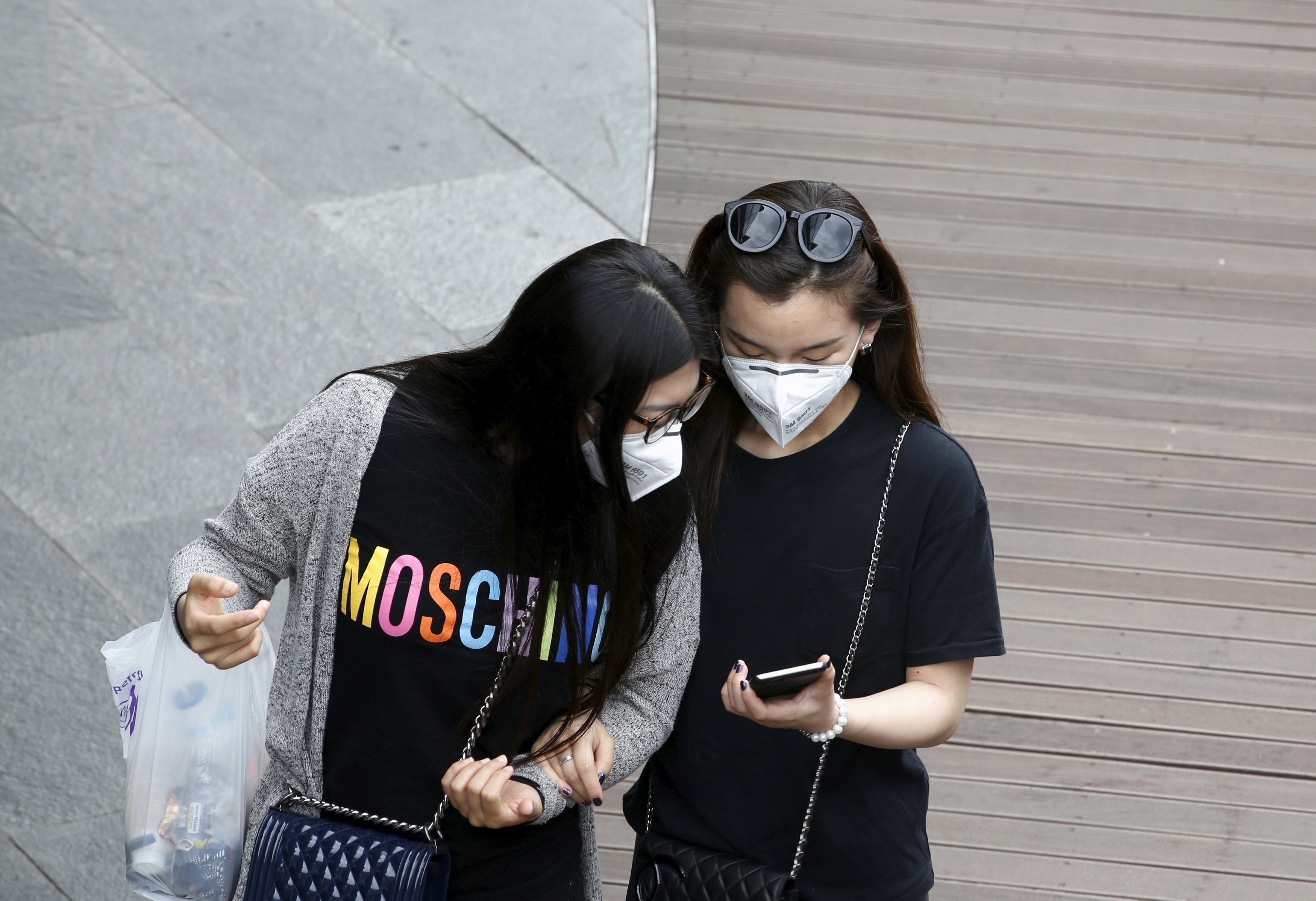South Korea reported a jump in cases of Middle East Respiratory Syndrome (MERS) on Monday while an 80-year-old man became the sixth fatality from the outbreak in the country and other Asian nations began taking preventive measures against the disease.
South Korean authorities closed nearly 2,000 schools and said fewer than 10 people who had broken quarantine rules were located and taken back home. In a couple of cases, they were located through cellphone tracking.
Malaysia advised its nationals to avoid South Korea and Singapore postponed or cancelled all school trips to the country, although the head of the World Health Organization (WHO) said she believed Seoul would be able to control the further spread of the virus by taking appropriate measures.
The Health Ministry announced 23 new infections, bringing the total to 87. South Korea now has the second highest number of infections in the world after Saudi Arabia, according to data from the European Centre for Disease Prevention and Control.
The latest MERS patient to die in South Korea was hospitalised for pneumonia when he was infected, officials in the city of Daejeon said. He was confirmed to have contracted the virus from another patient at a hospital.
Underlining concern about the spread of the disease, South Korean authorities said they would track the cellphones of about 2,500 people under quarantine who may have been in contact with patients. Some of those under quarantine are in healthcare facilities although most are at home.
Jeong Eun-kyeong, a South Korean disease control center official, said local health officials and police were keeping tabs on those quarantined.
"We are actively tracing their locations, cooperating with police or using other methods. We did cellphone tracking in a couple of cases. For contacts we must find, we will request location tracking and receive data," Jeong told reporters.
Local health officials have found some people, fewer than 10, who had broken quarantine and taken them back home, Jeong said, adding that those who break the rules can be fined.
A team of experts from the WHO was due to begin work on Tuesday to evaluate the response to the outbreak, including why it had spread so fast and advise on further measures.
The South Korean culture of families looking after their loved ones at hospitals may have been part of the reason for it to spread within healthcare facilities, WHO Director-General Margaret Chan told Yonhap news agency.
All known South Korean infections have taken place within healthcare facilities, where it is common for family and friends to make lengthy visits, sometimes around the clock.
The WHO has not advised any travel restrictions.
Rate cut?
South Korean Finance Minister Choi Kyung-hwan said he was concerned over the impact on its already flagging economy from the MERS outbreak. In remarked prepared for delivery at a luncheon, he said the government would take swift countermeasures if an economic impact was confirmed, but he stopped short of mentioning any possibility of a supplementary budget.
The MERS outbreak is adding pressure for another interest rate cut in South Korea, possibly as soon as the central bank's next policy meeting this week.
The South Korean government, under criticism for a lack of transparency and failing to respond swiftly to the outbreak, identified 24 health facilities where MERS patients have been present, including six where infections are known to have occurred.
Reflecting public concern among parents, 1,869 schools across the country were due to be closed on Monday, the Education Ministry said.
Malaysia's deputy Health Minister Hilmi Yahaya said citizens were advised not to travel to South Korea, but no ban had been imposed.
All school trips from Singapore to South Korea had been postponed or cancelled, Singaporean media reported at the weekend, citing the Ministry of Education.
The quarantine office at Japan's Narita Airport, which serves Tokyo, said announcements were being made on planes from South Korea that anybody who might have been in contact with a MERS patient or been in a hospital with MERS patients needed to report to quarantine officials.
In China, airports stepped up monitoring of incoming passengers and are requiring airlines to report any cases of passengers with high temperatures.
First identified in humans in 2012, MERS is caused by a coronavirus from the same family as the one that triggered Severe Acute Respiratory Syndrome, or SARS. SARS killed around 800 people worldwide after it first appeared in China in 2002.
South Korea's new cases bring the total of MERS cases globally to 1,236, based on World Health Organization (WHO) data, with at least 445 related deaths.






















































